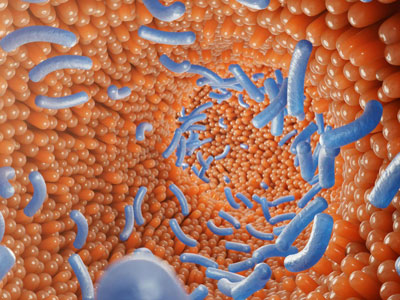Crohn's Disease vs. Ulcerative Colitis: What’s the Difference?
Both Crohn’s disease and Ulcerative colitis do not leave the life of the affected person unturned. It is essential to start by making distinctions between diseases, as the best IBD specialist in Hyderabad, Dr Kiran Peddi, explained. Both are fatal but bear somewhat different characteristics, which suggest they should be waged differently. This blog will focus on how to identify, treat, cause and diagnose Crohn’s disease and ulcerative colitis.
What is Crohn's Disease?
Inflammatory Bowel Disease is categorised as Crohn’s Disease, and Inflammatory Bowel Disease has been observed to have the capability to involve every segment of the colon. It may also lead to inflammation of deeper layers, parts of the small intestine wall, which may produce symptoms.

Symptoms of Crohn's Disease
- Abdominal pain and cramping
- Diarrhoea may be chronic and may, at times, contain blood
- Fatigue
- Weight loss
- Reduced appetite
- Nutritional deficiencies
- Fistulas are one of the most frequently reported pathologies in general surgery; they are described as abnormal communication between two organs.
What is Ulcerative Colitis?
The other condition is ulcerative colitis, mostly confined to the large intestine and the rectum. Ulcerative colitis (UC) is generally said to involve colon inflammation.
UC is characterised by inflammation of the mucosa and submucosa of the colon or the presence of pseudopolyps because their lifetime prevalence is shown to be higher than that in the general population. The Best Ulcerative Colitis doctor in Hyderabad will make you aware of any of these symptoms:
- Frequent diarrhoea, often with blood or pus
- Urgency to defecate
- Fatigue
- Weight loss e
- Fever in severe cases
Key Differences
Some of the strategies you can use to cope with the symptoms of both chronic diseases include diets as well as stress management. These conditions make you visit an IBD specialist in Hyderabad who will advise on a diet that can be taken without causing much inconvenience while meeting the body's requirements.
Depth of Inflammation
Crohn's Disease: Inflammation can also cross all the bowel wall layers and lead to complications such as structuring, abscessing or fistulating.
Ulcerative Colitis: Complications of inflammation are usually lesser but still not negligible because inflammation commonly affects only the mucosa without affecting the deeper structures of the oesophagus.
Symptoms and Complications
While both conditions share some symptoms, the severity and type can vary:
Crohn's Disease: Traditionally related to more profound symptoms such as fever and dramatic weight loss due to fat-soluble vitamin deficiency. This disease may also result in problems outside the gastrointestinal tract, such as joint or skin inflammation.
Ulcerative Colitis: Often results in other colorectal symptoms, which include the urge to defecate and tenesmus, the feeling of being constipated when there is nothing in the rectum. The possible complication of this process is toxic megacolon, a condition in which the colon enlarges and might rupture.
Age of Onset
Both conditions can develop at any age, but there are some trends:
Crohn's Disease: Predominantly diagnosed in late adolescence and early adulthood, though it can present in later years.
Ulcerative Colitis is most commonly found in younger and older populations.

Diagnosis
Both Crohn's disease and ulcerative colitis are diagnosed through a combination of:
- Medical history and physical examination
- Blood tests to check for anaemia and inflammation
- Stool tests to rule out infections
- Imaging studies like CT or MRI scans
- Endoscopy or colonoscopy for direct visualisation and biopsy of the intestine
Treatment Options
Medication
There are tablets and liquid preparations that control inflammation in the large intestine (5-aminosalicylates) and steroids to use during attacks. They are cortisol, azathioprine, mycophenolate and calcineurin inhibitors to manage inflammation.
Lifestyle Changes
The Best Doctor for Crohn’s Disease in Hyderabad and the Best Ulcerative Colitis Doctor in Hyderabad want people to know that there are avenues by which people with chronic illness can attempt to minimize symptoms, and they will cover dieting and stress.
Surgery
Crohn's Disease: It may grossly involve the small intestine apart from causing inflammation or may form in segments where the average length of the bowel is between the inflammation and distension.
Ulcerative Colitis: Limited to colon and rectum and is a chronic inflammatory condition of the mucosa of the large intestine.
To provide adequate treatment, One must diagnose Crohn’s disease and ulcerative colitis correctly. Both conditions are challenging, but most patients can still have an everyday life if the medical treatment and changes are well implemented. Seek your doctor’s attention if you believe you have signs of inflammatory bowel disease and ask for advice on your condition. You need to realise that it is not unique to you and that there is support for you.
FAQs
1. What did I learn? How do I determine the difference between Crohn’s and Ulcerative Colitis?
Answer: However, Crohn's is also a form of IBD and can affect any section of the gastrointestinal container, and also involves more tissular layers of the bowels. While UC is limited to the colon and rectum, the inflammation is only confined to the mucosa layer.
2. What are the symptoms of colon and rectal cancer, Crohn’s disease and ulcerative colitis?
Answer: Crohn’s disease features include peristalsis, such as pains at intervals, passing stools with blood, fatigue, loss of appetite, and malnutrition. Ulcerative colitis commonly manifests diarrhoea more often, sometimes with blood, the urge to defecate, weight loss, and high fever at its advanced stages.
3. Can Crohn’s disease and ulcerative colitis co-exist?
Answer: A given patient can be diagnosed both with Crohn’s disease and ulcerative colitis. However, such cases are relatively rare. This condition is also referred to as idiopathic colitis, where the origin of the disease cannot be further described.
4. What sort of treatment is feasible for both disorders?
Answer: Treatment commonly includes drugs that help reduce inflammation, such as aminosalicylates and corticosteroids. Dietary changes and stress management are crucial CKD management measures that must be altered over time. It can, however, be severe, and this often requires surgery, for instance, Crohn’s disease, which introduces complications in the small intestine.
5. Which changes can be made daily to help with IBD symptoms?
Answer: Some of the strategies used when managing IBD may involve taking healthy diets with no particular foods that can bring on an attack and engaging in physical activity, stress practices such as meditation or yoga, and drinking water. Referral to a healthcare professional is also essential in developing a plan suited to an individual.
Book Appointment



